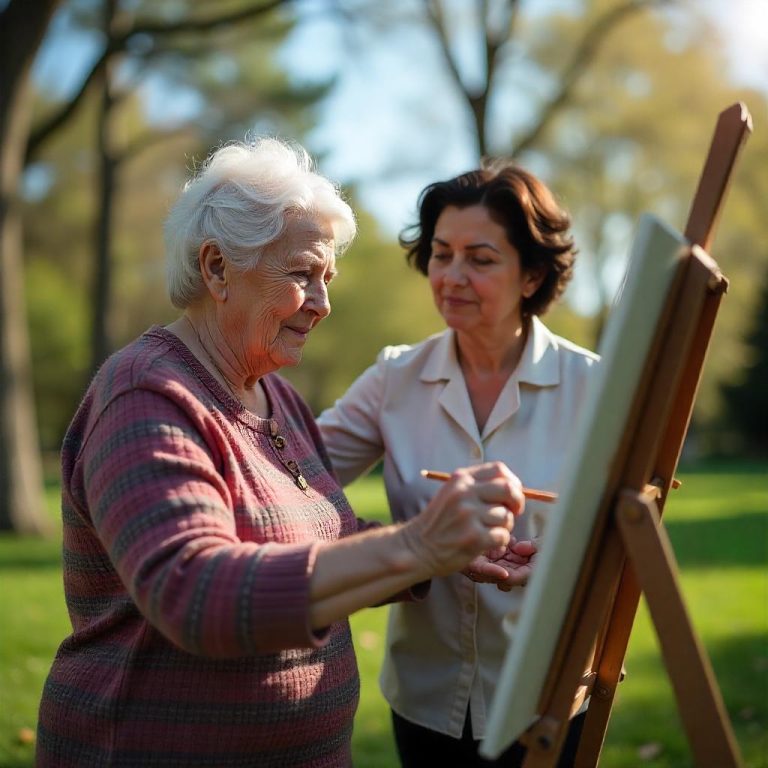Becoming a caregiver can be a rewarding and fulfilling career path, offering the opportunity to help others and make a significant difference in people’s lives. Caregivers provide assistance to individuals who need help with daily activities, including seniors, those with disabilities, and people dealing with chronic illnesses. If you’re interested in becoming a caregiver, here’s a step-by-step guide on how to enter the profession.
1. Understand the Role of a Caregiver
A caregiver’s primary role is to assist individuals who need help with daily activities due to age, illness, or disability. The tasks a caregiver performs can vary based on the client’s needs, but they typically include:
- Personal care assistance (bathing, dressing, grooming)
- Mobility assistance (helping with walking, transferring from a bed to a chair)
- Medication reminders
- Meal preparation and feeding
- Companionship and emotional support
- Housekeeping tasks (cleaning, laundry)
Understanding these responsibilities and what is expected of you is an essential first step.
2. Obtain Necessary Qualifications
The qualifications needed to become a caregiver depend on the type of care you will provide and the specific employer requirements. In most cases, the following steps are necessary:
- Education: While many caregivers do not require a formal degree, a high school diploma or equivalent is often preferred. Some caregivers may also complete training programs in healthcare or caregiving.
- Training: Many caregivers complete formal training, especially if they plan to provide medical or specialized care. These training programs may include topics like first aid, CPR, patient mobility, and communication skills. Some programs are offered by healthcare agencies, community colleges, or online platforms.
- Certification: Depending on your location, caregivers may be required to obtain certification. The Certified Nursing Assistant (CNA) or Home Health Aide (HHA) certifications are common in the U.S., and some states require these certifications for certain types of caregiving jobs.
- Background check: Many employers will require a criminal background check as part of the hiring process to ensure the safety of their clients.
3. Gain Experience
While formal experience is not always required, having some experience in caregiving or healthcare can help you stand out. Experience can be gained by:
- Volunteering at hospitals, nursing homes, or senior centers
- Assisting family members or friends with caregiving tasks
- Taking internships or entry-level jobs in the healthcare field
Even informal experience can help you develop valuable skills like empathy, patience, and communication, which are essential for caregivers.
4. Develop Key Skills
Successful caregivers possess a variety of skills to provide effective care and support. Some key skills include:
- Empathy and compassion for those in your care
- Physical stamina to assist with mobility and perform other physical tasks
- Patience to work with individuals who may have difficulty understanding or following instructions
- Strong communication skills to interact with clients, their families, and healthcare professionals
- Attention to detail to ensure clients’ needs are met and to follow care plans accurately
- Time management to handle multiple tasks efficiently
Focusing on these qualities will help you excel in your caregiving role.
5. Apply for Caregiver Jobs
Once you are trained and have the necessary qualifications, you can begin applying for caregiver positions. There are several places you can look for caregiving jobs:
- Home care agencies that hire caregivers for in-home services
- Nursing homes or assisted living facilities
- Hospitals that require caregivers for patient support
- Job boards and online platforms like Indeed, Care.com, or LinkedIn
When applying, make sure your resume highlights relevant skills, training, and any experience you have. Be prepared for interviews that may ask about your caregiving approach, experience with specific conditions, and your ability to handle difficult situations.
6. Take Continuing Education
Even after becoming a caregiver, continuing education and professional development are crucial to staying up-to-date with industry standards. Many caregiving organizations offer courses and workshops on topics like:
- Disease-specific caregiving (e.g., dementia, Alzheimer’s disease, Parkinson’s disease)
- Advanced caregiving techniques
- Family caregiver support
- Mental health and emotional support for seniors
Continuing education can improve your caregiving skills and increase your career advancement opportunities.
7. Consider Specializing
As a caregiver, you can specialize in particular areas of care. Some common specializations include:
- Dementia or Alzheimer’s care
- Hospice and palliative care
- Post-operative care (helping individuals recover after surgery)
- Childcare for children with special needs
- Disability care
Specializing in certain areas may require additional training or certifications but can lead to higher pay and more opportunities.
8. Build Relationships with Clients and Their Families
A key part of being a successful caregiver is building trust and strong relationships with your clients and their families. Providing consistent, high-quality care while maintaining clear communication can help you develop long-term professional relationships and potentially lead to job referrals.
Becoming a caregiver involves a combination of the right skills, qualifications, experience, and a passion for helping others. With the increasing demand for senior care, caregiving can be a fulfilling and stable career, offering a wide range of opportunities in various healthcare settings.






